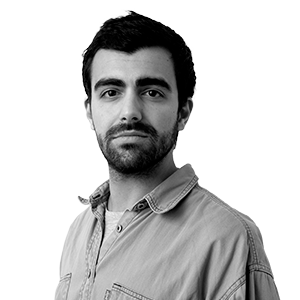Saved from the horrors of Gaza: Little Mohamed reconnects to life in Barcelona
Mohammed is one of the minors who escaped the war with his family to receive care in Barcelona.

BarcelonaMohammed was only two years old when the Israeli offensive in Gaza began. His sister Rafeef was already five, and to reassure her, her parents pretended that the bombings were harmless firefights that she shouldn't suffer. Despite their efforts to protect their children from the harshness of the war, Ali and Sabreen watched helplessly as Israel demolished their house and left them with nothing, like so many others who have lost everything in the last two years. As a result of the attack, Mohammed had a head injury, and Rafeef suffered serious psychological scars; she was traumatized. Furthermore, the little boy was born with a congenital heart disease, a heart defect that requires medical attention and healthcare resources that no longer exist in Gaza. The only alternative left to them was to flee the war and hunger to find treatment and a future for their children.
"They've made sure that no one can live in Gaza in the coming years. Life there is impossible, there is no future," laments Sabreen, who has finally been able to leave the country with her family, and they are now in Barcelona. They are part of a group of fifty people who arrived in Spain last week so that some children like Mohammed could receive vital medical care to survive. The little boy has already been seen by cardiologists at Vall d'Hebron Hospital and is waiting to find out when he will go into surgery for his condition. His mother is very happy because until now her son couldn't play like his friends, he tired very quickly and always ended up on his parents' shoulders because he couldn't keep up with the other children.
Without the operation, he wouldn't be able to live a normal life, although the first four years of Mohammed's life have been anything but normal, especially in recent months, when the hunger epidemic caused by Israel has taken its toll on refugees in Gaza. Ali remembers his daughter's surprise when they managed to cross the border into Jordan and the military plane that brought them here contained "real water" and fruit. Aside from the lack of food, his father explains that both Rafeef and Mohammed have suffered from stomach problems and gastroenteritis due to the rotten or spoiled food they've eaten to survive.
"There are no words to express those feelings"
For all this, the family wanted to thank the authorities who made it possible for them to flee war and famine and have requested territorial asylum so they wouldn't have to return. Sabreen still has family there and wants them to have the same opportunity she and her family have had after years of searching for a way out of Gaza so they could treat their son. Before the war, she sold products online, and he collaborated on temporary United Nations projects, such as street cleaning or working as a construction worker. However, with the outbreak of the Israeli offensive, they both quit their jobs and went out every day to look for something to eat, although they explain that it was very difficult due to the constant attacks on food distribution centers.
"There is no safe place," Ali recalls of the horror he left behind a week ago. Now, both he and his wife only have words of gratitude for all the people who made this possible and also for the health professionals who are ensuring a future for their young son. "I'm very happy for my son, that they can operate and he can run, not like after walking three meters he's already tired and his chest hurts. My daughter will live a better life, we'll be able to breathe clean air and drink clean water. There are no words in the world to express these feelings," concluded Sabreen.
These diseases must be treated at all costs because they are incompatible with life, according to the pediatric cardiologist and medical coordinator of pediatric heart transplants at Vall d'Hebron, Ferran Gran. However, with appropriate medical and surgical treatment, patients can have a very good quality of life. Gran explains that both Mohammed and the rest of the children who have arrived from Gaza with congenital heart disease are in "good clinical condition" and can be treated, but he warned that in addition to the heart defect, they also have traumatic, psychological, and nutritional impacts as a result of almost two years of war and hunger.
